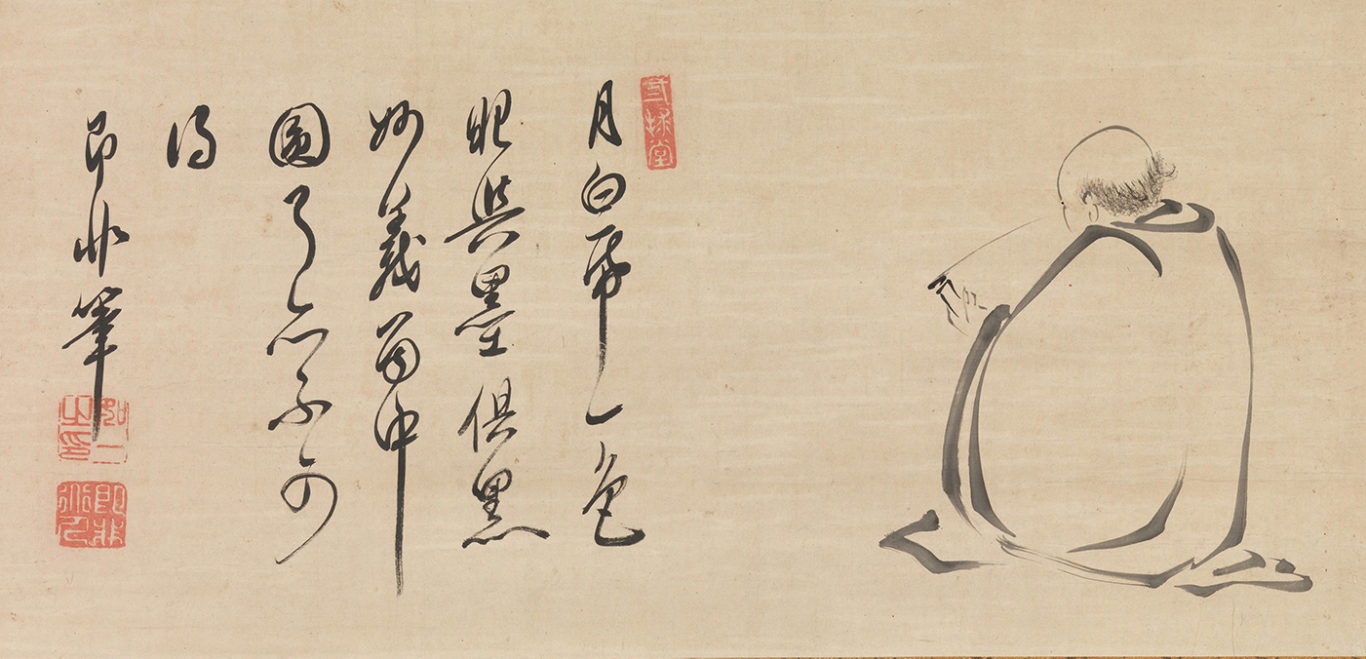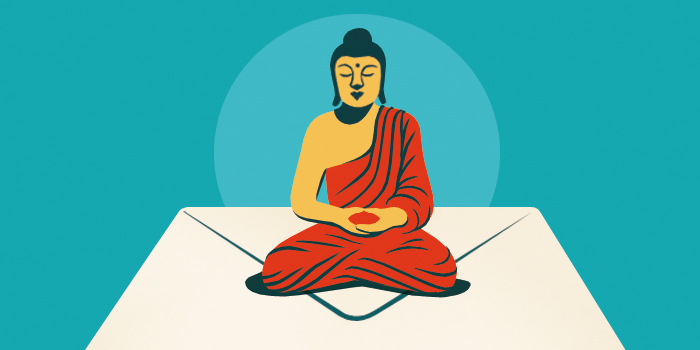What Makes a Person a Zen Buddhist?

Reading a Sutra by Moonlight by Sokuhi Nyoichi (Chinese: Jifei Ruyi) depicts the Chinese monk Yinyuan Longqi (1592–1673), known for founding the Obaku sect of Zen in Japan. | The Metropolitan Museum of Art, The Harry G. C. Packard Collection of Asian Art
The word “Zen” has become a part of our cultural lexicon, signifying calm, serenity, and stillness. The ubiquity of the word in the West reflects the popularity of this major Buddhist school.
Practiced by millions of people around the world, Zen originated in China before spreading to Japan and Korea, and later to the Western world.
Zen is a Mahayana Buddhist tradition that emphasizes simplicity, present-moment awareness, nonduality, nonconceptual understanding, and zazen (“just sitting”) meditation—the tradition’s most important practice. Focusing less on scripture and sutra study than other traditions, Zen places a great importance on the cultivation of mental clarity through meditation and the support of a teacher, also known as a Zen master, or sensei.
Click through the decks below to learn more about the history and core teachings of Zen Buddhism.
Discover Level 2, Deck 3:
What is Zen Buddhism? Zen is the Japanese name for a Buddhist tradition practiced by millions of people in East Asia and around the world.
What do Zen Buddhists practice? There are many different practices within the Zen tradition, the most well-known of which is zazen (“just sitting”) meditation.
What is the history of Zen Buddhism? Zen can be traced all the way back to the 5th century with Buddhist teachers who followed the Silk Road into China.
What are Zen’s major sects? Most Zen schools today can be traced back to the Linjing and Caodong schools of 13th-century China.
Who are some prominent figures in Zen Buddhism? The Indian monk Bodhidharma, who is often credited with bringing Buddhism to China, is often called the “first ancestor” of Zen.
What are some important texts in Zen Buddhism? While Zen emphasizes direct transmission over scripture study, there are a few key Mahayana sutras that have influenced the tradition.
What do Zen teachers say about enlightenment? It’s not just something for a select few—it’s the inherent nature of all beings. We just need to clear our minds to truly see it.
What is the difference between a Zen monk, nun, and priest? There are a number of different distinctions between Zen monastics in Asia and in the West.
Are there female Zen teachers? While female Zen ancestors go back centuries, women Zen practitioners of recent decades have had to fight for the right to full ordination.
Recommended Reading:
- Small Mind, Big Mind, by Shunryu Suzuki Roshi
- The Zen of Not Knowing, by Zenkei Blanche Hartman
- An Ear to the Ground, by Lin Jensen
- “That’s Very Zen,” by Clark Strand

Tricycle is more than a magazine
Gain access to the best in sprititual film, our growing collection of e-books, and monthly talks, plus our 25-year archive
Subscribe now